Crypto futures trading is a crucial tool in the digital asset space, allowing traders to hedge, diversify, and profit from market movements.
Selecting the right platform that matches your trading strategy, functionality needs, and security expectations is vital.
This guide concisely reviews the leading crypto futures trading platforms in 2024, focusing on their features, fees, security, liquidity, and customer support quality. It navigates through the varied landscape, highlighting 13 platforms such as:
- Bybit –[100X Leverage Crypto Exchange: Best Overall]
- BingX – [100x Leverage & No KYC]
- Phemex – [20x Leverage]
- Stormgain -[Bonus Of $25 ]
- MEXC –[100x leverage on Futures platform]
- Bitget –[up to 100x on its Futures contracts]
- Kraken
- OKX
- Binance
- BitMEX
- GMX
- Deribit
- PrimeXBT
Best Crypto Futures Exchanges Of 2024
| Exchange | Max Leverage | Supported Currencies | Trading Fees (Maker/Taker) |
|---|---|---|---|
| Bybit | 100x | 1,000+ | 0.02% / 0.055% (Derivatives), 0.1% (Spot) |
| BingX | 150x | 700+ | 0.02% / 0.05% (Futures), 0.1% (Spot) |
| Phemex | 100x | Not explicitly stated | 0.025% / 0.075% |
| StormGain | 200x | 40+ (Futures) | 0.010% – 0.030% |
| MEXC | 200x | 1,588 | 0%/0.2% (Spot), 0.02%/0.06% (Futures) |
| Kraken | 5x | 160+ | 0% – 0.26% (Spot), 0.01% – 0.05% (Futures) |
| OKX | 20x | 400+ | 0.08% / 0.10% |
| Binance | 125x | 500+ | 0.1% (can be reduced with BNB holding) |
| BitMEX | 100x | 10+ | 0.01% (Maker rebate), 0.075% (Taker) |
| Bitget | 125x | 550+ | 0.08% (with BGB) / 0.1%, 0.02% / 0.06% (Futures) |
| GMX | 50x | 8 | 0.05% or 0.07% |
| Deribit | 100x (BTC) / 50x (ETH) | BTC, ETH, SOL, USDC | Varies (-0.02% to 0.05%, depending on contract) |
| PrimeXBT | 100x | 39 | 0.05% |
1. Bybit
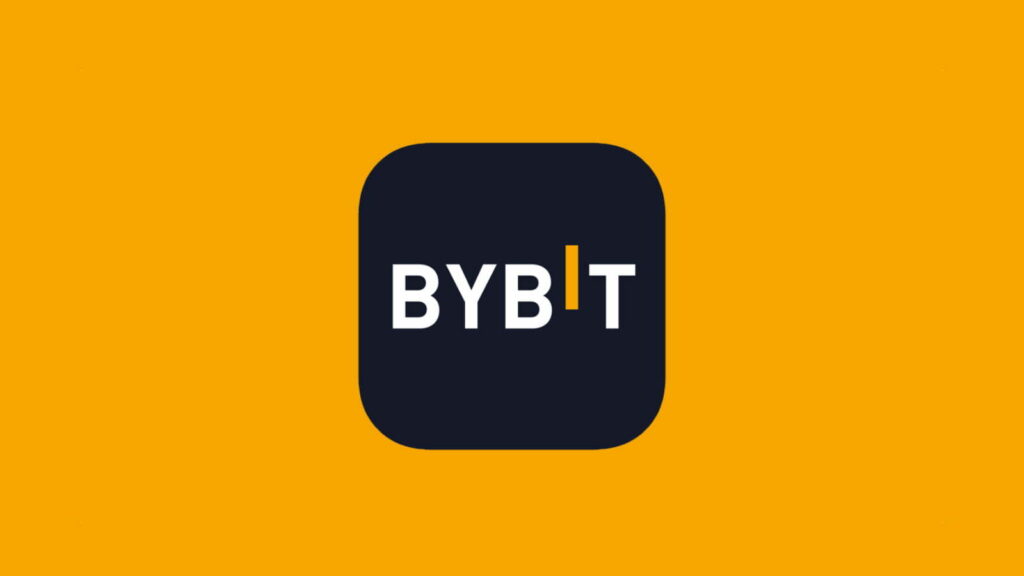
Bybit is one of the most popular and user-friendly crypto futures trading platforms, with over 2 million users and a daily trading volume of over $10 billion.
It was founded in 2018 and is headquartered in Dubai, UAE.
Bybit offers a smooth and seamless trading experience, focusing on customer satisfaction and innovation.
Some of the main features of Bybit are:
- Number of coins supported for futures trading: Bybit supports 100+ coins, including BTC, ETH, XRP, EOS, ADA, DOT, UNI, and more.
- Perpetual and inverse futures contracts for BTC, ETH, XRP, and EOS, with up to 100x leverage. This allows users to trade with high profits and low risks, regardless of the market direction.
- Innovative trading tools include mutual insurance, dual price mechanisms, and intelligent trading systems, such as conditional orders, stop-loss, and take-profit. These tools help users to protect their positions, avoid liquidation, and optimize their trading strategies.
- Low fees, starting from 0.075% for takers and -0.025% for makers. This makes Bybit one of the most affordable platforms in terms of trading costs.
- High security, with multi-signature cold wallets, two-factor authentication, and SSL encryption. This ensures that users’ funds and data are safe from hackers and unauthorized access.
- Excellent customer support, with 24/7 live chat, email, and social media channels. This provides users with fast and friendly assistance whenever they need it.
Some of the pros and cons of Bybit are:
Pros:
- Ease of Use: Bybit features a simple and intuitive interface that caters to beginners and experts.
- Performance: It boasts a high-performance matching engine that can handle 100,000 transactions per second.
- Bonuses and Rewards: Users can enjoy generous bonuses and rewards, including welcome bonuses, referral bonuses, and trading competitions.
- Multilingual Support: Bybit supports multiple languages, including English, Chinese, Japanese, Korean, and others.
Cons:
- Limited Coin Selection: Bybit’s coin selection is limited to 100+ coins for futures trading, which is less than that of platforms like Binance and Coinbase.
- Lack of Trading Options: No spot, margin, or options trading offerings exist.
- No Fiat Transactions: Bybit does not support fiat deposits or withdrawals, requiring the use of third-party services for currency conversion.
- Geographical Restrictions: Due to legal and regulatory issues, Bybit is unavailable in some countries, including the USA, Canada, Singapore, and others.
2. BingX
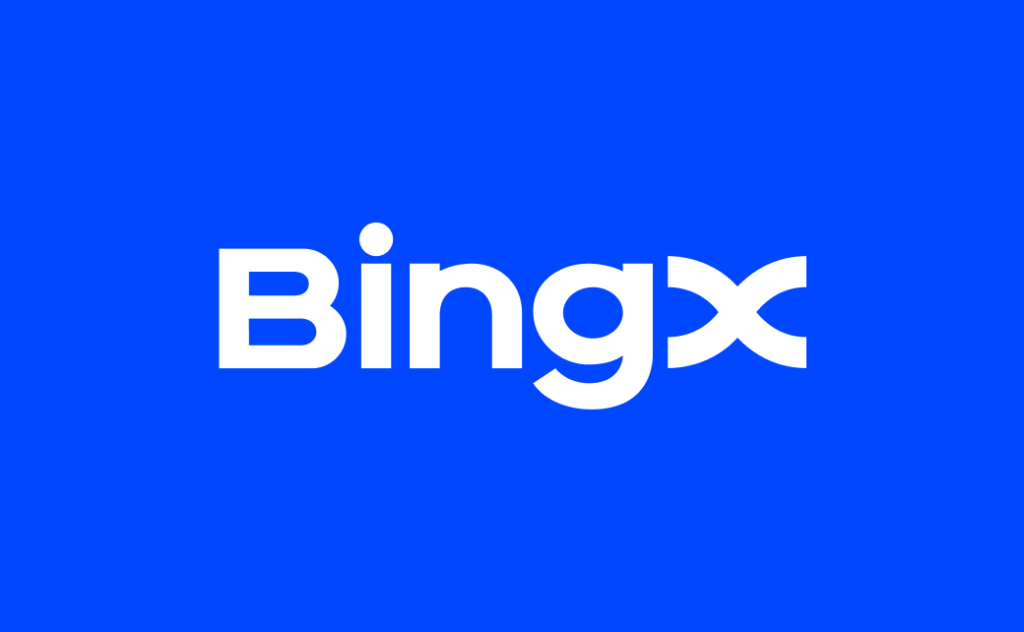
BingX is a new and innovative crypto futures trading platform powered by artificial intelligence and blockchain technology.
It was founded in 2018 and has branch offices in Canada, the EU, and Australia. BingX has a reputation for offering diversified products and services, including spot, derivatives, copy trading, and asset management.
Some of the main features of BingX are:
- Perpetual and quarterly futures contracts for BTC, ETH, LTC, and BCH, with up to 150x leverage. This allows users to trade with higher profits and lower risks.
- Low fees of 0.04% for makers and 0.06% for takers. This makes BingX one of the most competitive platforms in terms of trading costs.
- AI-based trading bots can execute trades automatically based on predefined strategies and market conditions. This enables users to take advantage of the market opportunities without spending too much time and effort.
- Zero fees, with a unique revenue-sharing model that distributes 80% of the platform’s profits to users. This means users can earn passive income from holding BingX tokens and participating in the platform’s governance.
- High security, with decentralized custody, intelligent contracts, and biometric verification. This ensures that users’ funds and data are protected from hackers and malicious actors.
- Social trading, with a community of traders that can share ideas, strategies, and signals. This fosters a collaborative and supportive environment for users to learn from each other and improve their trading skills.
Some of the pros and cons of BingX are:
Pros:
- Wide Range of Assets: BingX offers over 700+ coins, including popular cryptocurrencies like Bitcoin, Ethereum, and Solana.
- Fiat Support: The platform supports fiat deposits and withdrawals for easy access.
- High-Security Standards: BingX ensures security through regular audits and compliance checks by leading cybersecurity firms and regulators.
- Responsive Customer Service: They provide 24/7 online support with multilingual assistance.
Cons:
- Low Liquidity: BingX’s liquidity is lower than that of leading exchanges, which may impact trade execution and pricing.
- Complex Interface: The interface may be challenging for beginners or casual traders.
- Limited Regional Availability: BingX is unavailable in certain regions, including China and Iran, due to legal and regulatory restrictions.
3. Phemex
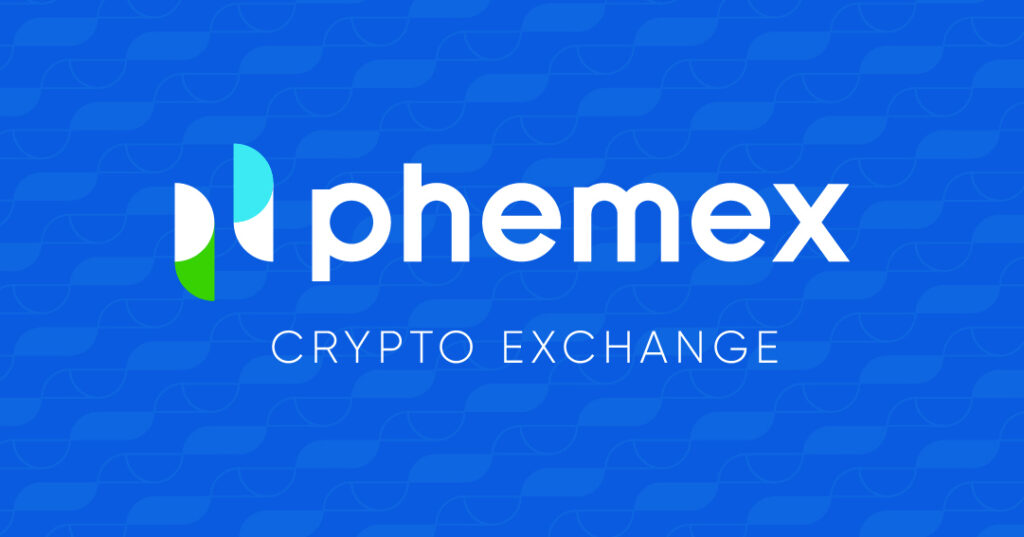
Phemex is a professional and fast crypto futures trading platform founded by former Wall Street executives and engineers in 2019.
It is headquartered in Singapore and has a global user base of over 2 million traders.
Phemex offers a smooth and secure trading experience focusing on innovation and customer satisfaction.
Some of the main features of Phemex are:
- Several futures contracts: Phemex supports 17 perpetual and linear futures contracts for BTC, ETH, XRP, LINK, and more, with up to 100x leverage. This allows users to trade with high profits and low risks, regardless of the market direction.
- Spot trading: Phemex offers zero fees for premium members and access to over 50 cryptocurrencies for spot trading. This enables users to buy and sell crypto with minimal costs and maximum convenience.
- Low fees: Phemex charges low fees, starting from 0.075% for takers and -0.025% for makers. This makes Phemex one of the most affordable platforms in terms of trading costs.
- High security: Phemex ensures high security with hierarchical deterministic cold wallets, two-factor authentication, and allowlisting. This protects users’ funds and data from hackers and unauthorized access.
- Unique trading tools: Phemex provides unique trading tools, such as sub-accounts, trading simulators, and learning centers. These tools help users to manage their portfolios, practice their skills, and enhance their knowledge.
Some of the pros and cons of Phemex are:
Pros:
- High-Performance Engine: Phemex boasts a matching engine capable of processing 300,000 transactions per second.
- Trading Options: Offers both spot and futures trading for greater user flexibility.
- Competitive Fees: Known for low fees alongside generous bonuses and rewards.
- Educational Resources: Provides a variety of educational materials, including articles, videos, and quizzes.
- Diverse Asset Selection: Over 70 crypto pairs, gold, and stock indices are featured.
Cons:
- No Fiat Support: Users cannot directly deposit or withdraw fiat currency, requiring third-party services for conversion.
- Limited Customer Support: Customer support is restricted to email or social media channels.
- Geographical Restrictions: Due to legal and regulatory constraints, access is limited in certain countries, including the US and Singapore.
4. Stormgain
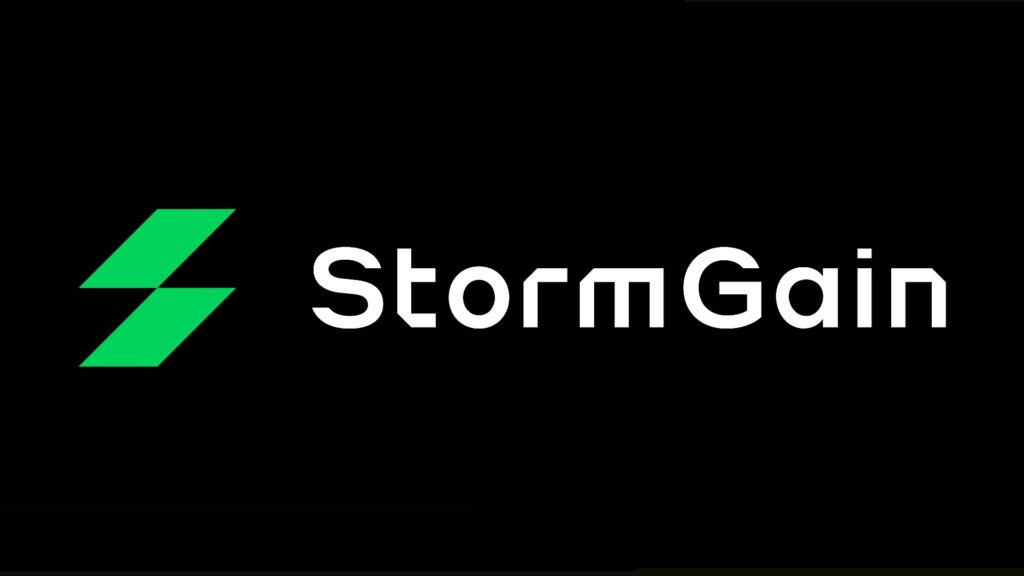
Stormgain is a simple and convenient crypto futures trading platform for mobile users and beginners. It was founded in 2019 and is registered in Seychelles.
Stormgain offers a smooth and secure trading experience with various products and services, including spot, derivatives, cloud mining, and asset management.
Some of the main features of Stormgain are:
- Perpetual and turbo futures contracts for BTC, ETH, XRP, LTC, and more, with up to 200x leverage. This allows users to trade with high profits and low risks, regardless of the market direction.
- Cloud mining allows users to mine cryptocurrencies using the platform’s servers for free. This enables users to earn passive income from holding Stormgain tokens and participating in the platform’s governance.
- Low fees, starting from 0.15% for takers and 0.05% for makers. This makes Stormgain one of the most competitive platforms in terms of trading costs.
- High security, with cold storage, two-factor authentication, and SSL encryption. This ensures that users’ funds and data are protected from hackers and malicious actors.
- A loyalty program that rewards users with discounts, bonuses, and cashback. This fosters a loyal and supportive community of users who can benefit from the platform’s growth and development.
Some of the pros and cons of Stormgain are:
Pros:
- Registration: Quick and easy, with no KYC verification needed.
- Fiat and Credit Card Transactions: Supports deposits and withdrawals, enhancing accessibility.
- Mobile App: This app is available for iOS and Android, enabling trading and fund management.
- Customer Support: Offers 24/7 assistance through live chat, email, and phone.
Cons:
- Liquidity: Lower than major platforms like Binance and Coinbase, potentially affecting trade execution and pricing.
- Asset Selection: Limited to only 15 coins for futures trading, with no spot, margin, or options trading available.
- Minimum Deposit: Requires a high minimum deposit of $50.
- Minimum Trade Size: Sets a high minimum trade size of $10.
5. MEXC

MEXC is a comprehensive and diverse crypto futures trading platform with a global presence and a large user base.
It was founded in 2018 by John Chen, a former Wall Street executive and engineer.
MEXC has a reputation for offering various products and services, including spot, derivatives, copy trading, and asset management.
Some of the main features of MEXC are:
- Perpetual and quarterly futures contracts for BTC, ETH, and over 100 other cryptocurrencies, with up to 100x leverage. This allows users to trade with high profits and low risks, regardless of the market direction.
- Spot trading, with zero fees for makers and access to over 300 cryptocurrencies. This enables users to buy and sell crypto with minimal costs and maximum convenience.
- Low fees, starting from 0.06% for takers and -0.02% for makers. This makes MEXC one of the most competitive platforms in terms of trading costs.
- Comprehensive trading tools include spot, margin, ETF trading, staking and lending services, and trading bots. These tools help users to diversify their portfolios, increase their returns, and optimize their trading strategies.
- High security, with multi-layer protection, two-factor authentication, and anti-phishing codes. This ensures that users’ funds and data are safe from hackers and unauthorized access.
- Multiple languages, currencies, and payment methods are supported. This gives users more options, flexibility, and friendly and supportive customer service.
Some of the pros and cons of MEXC are:
Pros:
- High Liquidity: MEXC offers high liquidity, facilitating faster and more accurate trade execution.
- Extensive Asset Range: Provides a vast selection of over 700+ coins, including Bitcoin, Ethereum, Solana, and others.
- Fiat and Crypto Support: The platform supports fiat and various cryptocurrencies for user convenience.
- Multilingual Customer Service: Available via live chat, email, and social media channels.
Cons:
- Complex Interface: The interface may be too complicated for beginners or casual traders.
- Frequent Maintenance: Regular system maintenance might cause disruptions for users.
- Limited Regional Availability: Due to legal and regulatory constraints, MEXC is unavailable in certain countries, including the US and Japan.
6. Kraken
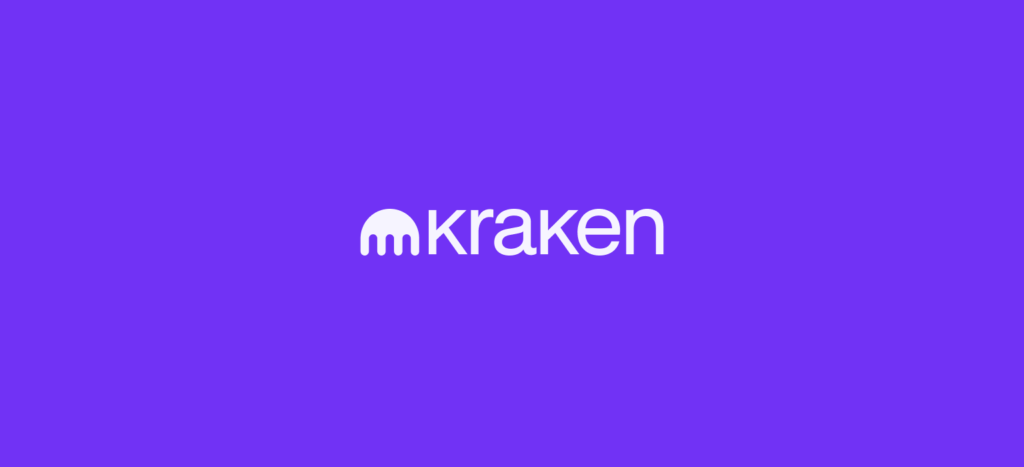
Kraken is among the world’s oldest and most trusted crypto futures trading platforms. It was founded in 2011 by Jesse Powell and is based in San Francisco, USA.
It has established a strong reputation for security, reliability, and transparency, enjoying high customer satisfaction and loyalty.
Kraken provides a wide range of features and services for crypto traders, including:
- Perpetual and fixed-date futures contracts for BTC, ETH, LTC, XRP, and BCH, with up to 50x leverage, enabling users to trade with high profits and low risks, regardless of market direction.
- Low fees, starting from 0.02% for makers and 0.05% for takers, along with professional trading tools such as advanced order types, trading API, and margin trading, makeraken a competitive and sophisticated platform regarding trading costs and functionality.
- Spot trading with low fees and access to over 50 cryptocurrencies, including Bitcoin, Ethereum, Litecoin, Ripple, and Bitcoin Cash, allows users to buy and sell crypto with minimal costs and maximum convenience.
- Fiat deposits and withdrawals support USD, EUR, GBP, CAD, and more, offering users more options, flexibility, and a fast and secure way to fund their accounts and cash out their profits.
- High-security measures, with 95% of funds stored in cold storage, alongside two-factor authentication and PGP encryption, ensure the safety of users’ funds and data from unauthorized access.
- Support for fiat and multiple cryptocurrencies, a global presence, and regulatory compliance, with licenses and registrations in various jurisdictions such as the US, the UK, Japan, and Australia, providing users with confidence and trust in the platform and access to a large and diverse market.
Pros and cons of Kraken include:
7. OKX
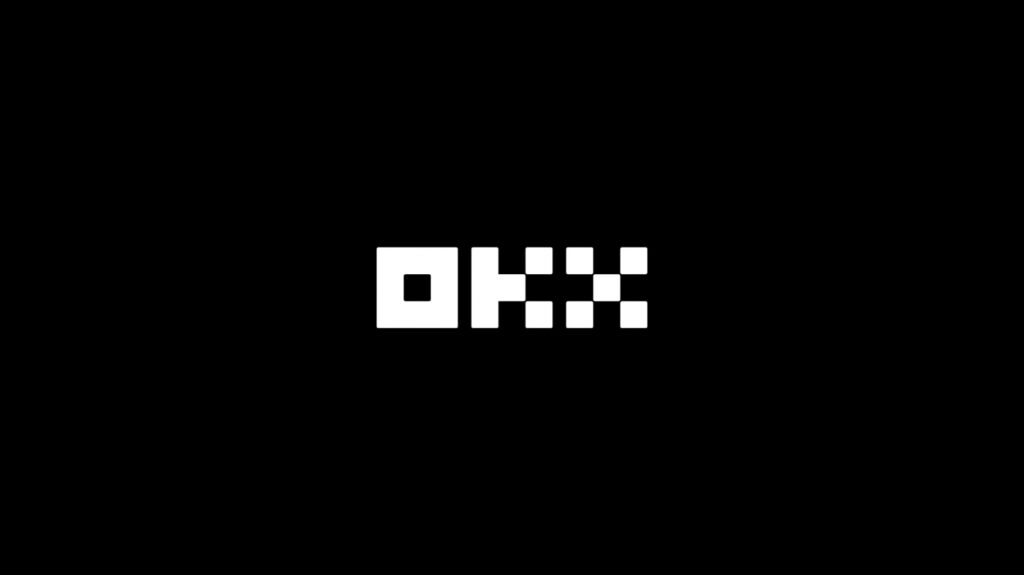
OKX is a Seychelles-based cryptocurrency centralized exchange (CEX) and wallet platform that serves millions of clients worldwide.
It was founded in 2017 by Star Xu, a former CTO of Docin.com and a blockchain pioneer.
OKX has a reputation for being a leading and innovative crypto futures trading platform focused on advanced and experienced traders.
OKX offers a variety of features and services for crypto traders, including:
- Perpetual, linear, and inverse futures contracts for BTC, ETH, and over 60 other cryptocurrencies, with up to 100x leverage. This allows users to trade with high profits and low risks, regardless of the market direction.
- Versatile trading tools include spot, margin, options trading, DeFi and NFT platforms, and mining pool. Options and swaps trading, with flexible and customizable contracts and strategies. This enables users to diversify their portfolios, increase their returns, and optimize their trading strategies.
- Low fees, starting from 0.05% for takers and -0.02% for makers. This makes OKX one of the most competitive trading cost platforms.
- High security, with cold and hot wallets, two-factor authentication, and anti-DDoS protection. This ensures that users’ funds and data are safe from hackers and unauthorized access.
- Trading tools and resources include trading simulators, market analyses, and academies. These tools help users to learn, practice, and improve their trading skills and knowledge.
Some of the pros and cons of OKX are:
Pros:
- Market Leadership: OKX is recognized as a leading and innovative platform in the crypto market.
- Diverse Trading Products: Offers a variety of trading products with a broad range of assets and features.
- Competitive Fees: Known for its low fee structure.
- High Security: Prioritizes security with robust measures in place.
- Trading Tools and Resources: Provides users with various tools and resources for trading.
Cons:
- Limited Coin Selection: Offers fewer coins than other platforms like Binance and Coinbase.
- No Fiat Transactions: Lacks support for fiat deposits and withdrawals.
- Geographical Restrictions: Not available in some countries, including the US and Japan, due to legal and regulatory issues.
- Steep Learning Curve: The platform’s complexity may be challenging for beginners or casual traders.
8. Binance

Binance is a Malta-based cryptocurrency centralized exchange (CEX) and wallet platform that serves over 15 million users worldwide.
It was founded in 2017 by Changpeng Zhao, a former CTO of OKCoin and a prominent figure in the crypto industry.
Binance has a reputation for being the world’s largest and most popular crypto futures trading platform, with a considerable market share and a loyal user base.
Binance offers a variety of features and services for crypto traders, including:
- Perpetual and quarterly futures contracts for BTC, ETH, and over 100 other cryptocurrencies, with up to 125x leverage. This allows users to trade with high profits and low risks, regardless of the market direction.
- Low fees, starting from 0.02% for makers and 0.04% for takers, and extensive trading tools, such as spot, margin, and options trading. This makes Binance one of the most competitive and comprehensive platforms in terms of trading costs and functionality.
- Spot, margin, and savings trading, with low fees and access to over 200 cryptocurrencies, including Bitcoin, Ethereum, Binance Coin, and many more. This enables users to buy and sell crypto with minimal costs and maximum convenience.
- Fiat deposits and withdrawals, with support for over 60 currencies and multiple payment methods, such as bank transfers, credit cards, and third-party providers. This gives users more options, flexibility, and a fast and secure way to fund their accounts and cash out their profits.
- High security, with SAFU fund, two-factor authentication, and address allowlisting. This ensures that users’ funds and data are safe from hackers and unauthorized access.
- Trading tools and resources include trading dashboards, market analysis, and an academy. These tools help users to monitor, analyze, and improve their trading performance and knowledge.
Some of the pros and cons of Binance are:
Pros:
- High Liquidity: Binance offers high liquidity, enabling faster and more accurate trade execution.
- Large Market: Features a market with over 700+ coins, including Bitcoin, Ethereum, Binance Coin, and others.
- Multiple Trading Products: Supports a variety of trading products with a wide range of assets and features.
- Fiat Transactions: Allows fiat deposits and withdrawals in multiple currencies and payment methods.
- Robust Security: Provides high security with the SAFU fund, two-factor authentication, and address allowlisting.
- Customer Support: Offers 24/7 customer support through live chat, email, and social media channels.
Cons:
- Regulatory Challenges: Faces scrutiny and bans from authorities in countries like the US, the UK, Japan, and Germany.
- Complex Interface: The platform’s interface may be overwhelming for beginners or casual traders.
- Restricted Availability: Some regions have limited availability due to legal and regulatory issues.
- System Overloads: Experiences frequent system overloads, potentially causing disruptions for users.
9. BitMEX
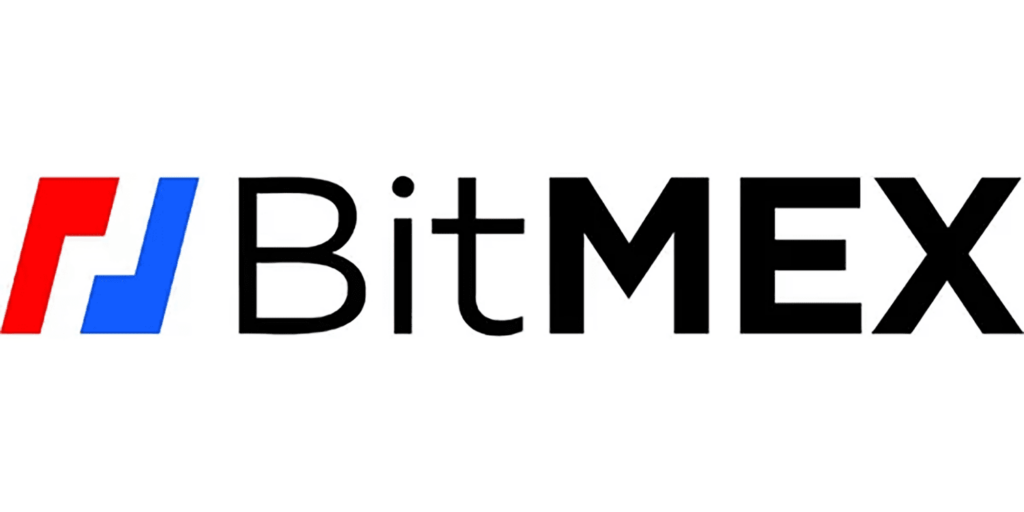
BitMEX is a Hong Kong-based cryptocurrency centralized exchange (CEX) and wallet platform that serves over 1 million users worldwide.
It was founded in 2014 by Arthur Hayes, Ben Delo, and Samuel Reed, experienced traders and programmers.
BitMEX has a reputation for being one of the oldest and most established crypto futures trading platforms, with a focus on high-volume and high-risk traders.
BitMEX offers a variety of features and services for crypto traders, including:
- Perpetual and fixed-date futures contracts for BTC, ETH, and over ten other cryptocurrencies, with up to 100x leverage. This allows users to trade with high profits and low risks, regardless of the market direction.
- Low fees, starting from 0.075% for takers and -0.025% for makers, and sophisticated trading tools, such as advanced order types, trading API for bots, and auto-deleveraging. BitMEX is one of the most competitive and advanced platforms regarding trading costs and functionality.
- High security, with multi-signature cold wallets, two-factor authentication, and PGP encryption. This ensures that users’ funds and data are safe from hackers and unauthorized access.
- Trading tools and resources include trading dashboards, market analysis, and research reports. These tools help users to monitor, analyze, and improve their trading performance and knowledge.
Some of the pros and cons of BitMEX are:
Pros:
- Established Platform: BitMEX is recognized as an old and reputable platform with a dedicated customer base.
- Competitive Fees: Known for its low fee structure.
- High Security: Maintains high-security standards with an experienced team.
- High Liquidity for Bitcoin: Notably, there is high liquidity, particularly for perpetual Bitcoin contracts.
Cons:
- Limited Coin Selection: Offers a narrower range of coins than competitors like Binance and OKX.
- Futures Only: Limited to futures contracts without spot, margin, or options trading support.
- No Fiat Transactions: This does not facilitate fiat deposits or withdrawals.
- Geographical Restrictions: Access is restricted in certain countries, including the US, Canada, and China.
- System Overloads: We may experience frequent system overloads, potentially disrupting user activity.
10. Bitget
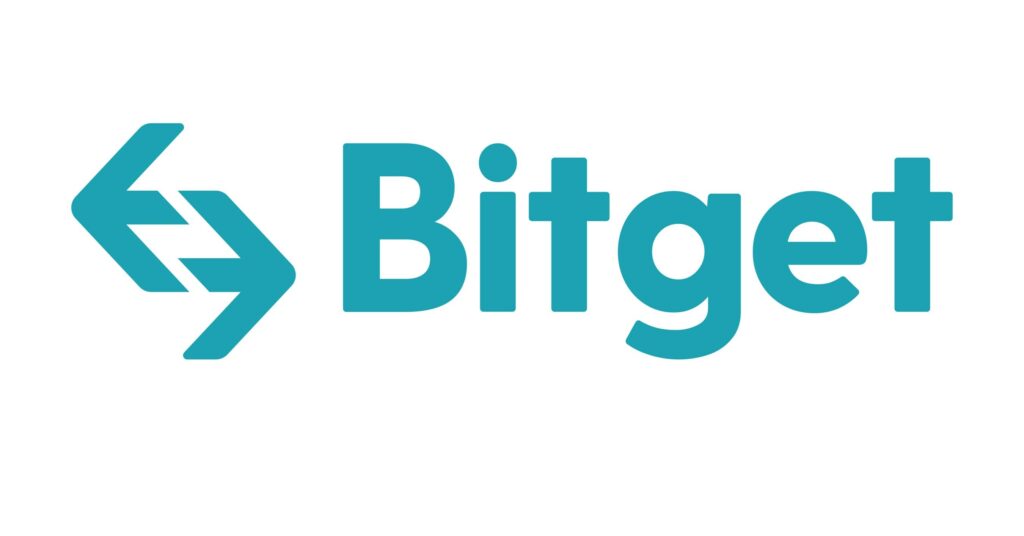
Bitget is a crypto exchange founded in 2018 and based in Singapore.
It has a strong reputation for being a fast and easy crypto futures trading platform focused on mobile users and beginners.
Bitget has over 8 million users across over 100 countries and regions, making it a popular platform.
Some of the main features of Bitget are:
- Perpetual and linear futures contracts for BTC, ETH, and over 40 other cryptocurrencies, with up to 100x leverage. This allows users to trade with high profits and low risks, regardless of the market direction.
- Innovative trading tools include copy trading, Quanto Swap Contracts, and USDT Margined Contracts. These enable users to follow the strategies of professional traders, trade with any currency pair, and use USDT as the margin currency.
- Low fees, starting from 0.04% for takers and -0.01% for makers. This makes Bitget one of the most competitive and cost-effective platforms regarding trading costs.
- High security, with cold and hot wallets, two-factor authentication, and SSL encryption. This ensures that users’ funds and data are safe from hackers and unauthorized access.
- Multiple languages and currencies are supported. Bitget supports 13 languages, including English, Chinese, Japanese, Korean, and more. It also supports fiat deposits and withdrawals with multiple currencies and payment methods, such as USD, EUR, GBP, AUD, SGD, and more.
Some of the pros and cons of Bitget are:
Pros:
- User-Friendly: Bitget is known for its convenience, easy registration process, and user-friendly mobile app.
- Support Options: Offers support for fiat and multiple cryptocurrencies, providing flexibility for users.
- Customer Support: Provides 24/7 customer service.
- Benefits: Includes a welcome pack of 1000 USDT, a protection fund of 300M USDT, and a trading showdown with a prize pool of 10,000 USDT.
Cons:
- Liquidity: Has lower liquidity compared to platforms like Binance and Kraken.
- Leverage: Offers up to 100x leverage, which may not satisfy traders seeking higher returns.
- Asset Selection: Features a limited selection of 43 cryptocurrencies.
- Availability: Faces limited availability in certain countries, including the US and Canada, due to legal and regulatory constraints.
11. GMX
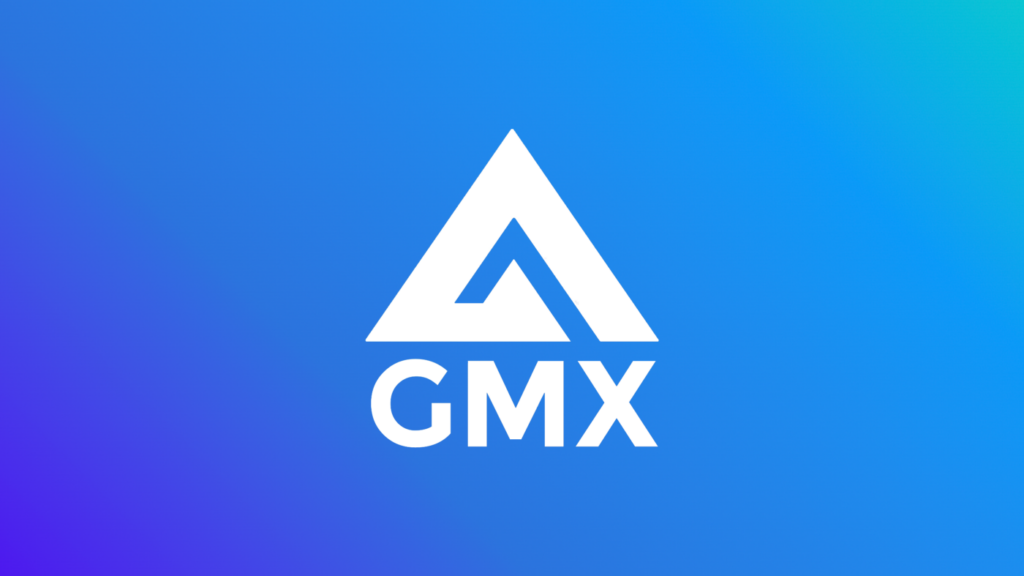
GMX is a crypto exchange launched in 2021 and based in the UK.
It has a reputation for being a new and innovative crypto futures trading platform powered by decentralized finance and blockchain technology. GMX aims to provide crypto enthusiasts with a fast, secure, and user-friendly trading experience.
Some of the main features of GMX are:
- Perpetual and inverse futures contracts for BTC, ETH, and over 20 other cryptocurrencies, with up to 50x leverage. This allows users to trade with high profits and low risks, regardless of the market direction.
- Low fees of 0.025% for makers and 0.075% for takers, and zero fees with a unique governance token (GMX) that rewards users for trading and staking. This makes GMX one of the most competitive and cost-effective platforms regarding trading costs.
- High security, with decentralized custody, intelligent contracts, and biometric verification. This ensures that users’ funds and data are safe from hackers and unauthorized access.
- Unique trading tools include zero-gas fee transactions, cross-margin mode, and governance tokens. These enable users to save on transaction costs, trade with any currency pair, and participate in the platform’s decision-making process.
- Social trading, with a community of traders that can share ideas, strategies, and signals. This allows users to learn from each other, follow the best performers, and improve their trading skills.
- Cross-chain compatibility, with support for Ethereum, Binance Smart Chain, and Polygon networks. This gives users more options, flexibility, and access to a large and diverse market.
Some of the pros and cons of GMX are:
Pros:
- Innovation: GMX stands out for its focus on decentralized finance and blockchain technology.
- No Fees: It offers the advantage of zero trading fees.
- Security and Compatibility: High security and cross-chain compatibility are key features.
- User Experience: The platform is user-friendly, with a simple interface, a mobile app, and 24/7 customer support.
Cons:
- New Platform: As a new entrant, GMX has a limited track record and reputation.
- Leverage Cap: The platform caps leverage at 50x, which may not meet the needs of all traders.
- Coin Selection: Offers a limited selection of 23 cryptocurrencies.
- No Fiat Transactions: You cannot make fiat deposits or withdrawals.
- Geographical Limitations: GMX faces restrictions in some countries, including the US and China, due to legal and regulatory issues.
12. Deribit
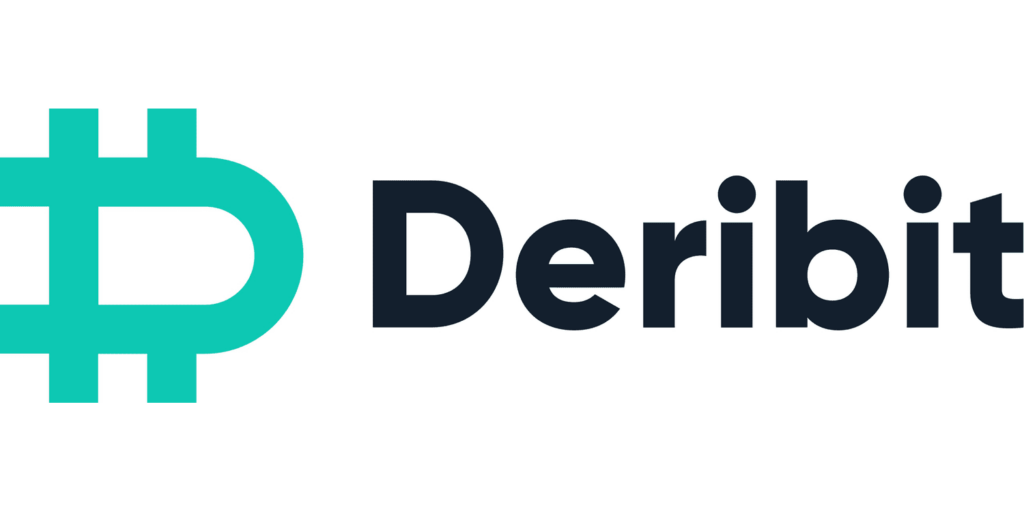
Deribit is a crypto exchange founded in 2016 and based in Panama.
It has a reputation for being a specialized and advanced crypto futures trading platform with a focus on options and derivatives trading.
Deribit caters to crypto traders who want to execute complex and sophisticated trading strategies for Bitcoin (BTC) and Ether (ETH).
Some of the main features of Deribit are:
- Perpetual and fixed-date futures contracts for BTC and ETH, with up to 50x leverage. This allows users to trade with high profits and low risks, regardless of the market direction.
- Options trading with flexible and customizable contracts and strategies. This enables users to hedge their positions, speculate on price movements, and create various combinations of calls and puts.
- Low fees start from -0.01% for makers and 0.05% for takers. This makes Deribit one of the most competitive and cost-effective platforms regarding trading costs.
- High security, with 99% of funds in cold storage, two-factor authentication, and allowlisting. This ensures that users’ funds and data are safe from hackers and unauthorized access.
- Specialized trading tools, such as its options trading, its trading API, and its insurance fund. These allow users to access advanced features like implied volatility charts, delta hedging, and risk management.
Some of the pros and cons of Deribit are:
Pros:
- Specialization: Deribit is tailored for options and futures trading.
- Competitive Fees: Offers low fees for transactions.
- Security: High security is a priority, ensuring user safety.
- Liquidity and Speed: High liquidity and fast execution speed are notable features.
- Transparency: The platform is known for its transparent operations.
- Experienced Team: Backed by a team with significant industry experience.
- User Interface: Simple and intuitive, enhancing user experience.
- Mobile App: Provides a mobile app for trading on the go.
- Customer Support: Offers round-the-clock customer support.
Cons:
- Coin Selection: Limited to only Bitcoin (BTC) and Ethereum (ETH).
- No Fiat Transactions: This does not support fiat deposits or withdrawals.
- Geographical Restrictions: Not accessible in some countries like the US, Canada, and Japan due to regulatory issues.
13. PrimeXBT

PrimeXBT is a crypto exchange launched in 2018 and based in Seychelles.
It has a reputation for being a versatile and diverse crypto futures trading platform with a focus on multi-asset trading and portfolio management.
PrimeXBT allows you to trade cryptocurrencies, crypto futures, and traditional financial instruments such as Forex, S&P 500, and Nasdaq composite indices, commodities like crude oil and natural gas, and many others from a single account.
Some of the main features of PrimeXBT are:
- Perpetual and fixed-date futures contracts for BTC, ETH, and over 50 other cryptocurrencies, with up to 100x leverage. This allows you to trade with high profits and low risks, regardless of the market direction.
- Forex, stock, and commodity trading, with access to over 200 global markets and instruments. This enables you to diversify your portfolio, hedge your risks, and exploit market opportunities.
- Diverse trading tools, such as its spot, margin, and forex trading, its Covesting module, and its Turbo platform. These allow you to access different trading modes, such as buying and selling crypto at market prices, borrowing funds to increase your exposure, trading currency pairs with leverage, copying the strategies of expert traders, and making quick profits with short-term contracts.
- Low fees, starting from 0.05% for takers and makers. This makes PrimeXBT one of the most competitive and cost-effective platforms regarding trading costs.
- High security, with cold storage, two-factor authentication, and SSL encryption. This ensures your funds and data are safe from hackers and unauthorized access.
Some of the pros and cons of PrimeXBT are:
Pros:
- Versatility: PrimeXBT caters to various trading preferences and portfolio management needs.
- Low Fees: The platform is known for its competitive fee structure.
- Security: High-security measures are in place to protect users.
- Ease of Registration: Offers a quick and straightforward registration process.
- Fiat and Crypto Support: Supports multiple fiat currencies and cryptocurrencies.
- Mobile Accessibility: Provides a mobile app for trading convenience.
- Customer Support: Available 24/7 through various channels.
- User Interface: Features a simple and intuitive interface.
- Trading Tools: A wide array of trading tools are available to users.
- Customer Base: Has a loyal and satisfied user community.
Cons:
- Coin Selection: Limited to 53 cryptocurrencies, fewer than some other platforms.
- Fiat Transactions: Fiat deposits and withdrawals are not available.
- Geographical Restrictions: Not available in certain countries like the US and Canada.
- Liquidity: Lower liquidity compared to larger platforms such as Binance and Kraken.
- Verification Process: The process can be complex and may lead to delays.
Crypto futures trading platform with Zero Commission and Zero Brokerage
In crypto trading, platforms might offer low or zero fees for specific actions (like making deposits or withdrawals or providing rebates for market makers). Still, they usually recover costs through other means.
As of the last update in April 2024, it’s rare to find platforms that offer zero commission and zero brokerage across all trading activities without some form of healing elsewhere.
However, platforms like Phemex and Binance (with their Binance Coin discounts and tiered fee structure based on trading volume or holding BNB) have been known to offer highly competitive fee structures that can minimize trading costs under certain conditions.
On the other hand, KuCoin has a VIP program that rewards traders with lower fees based on their trading volumes and KCS token holdings. Traders who reach VIP levels 5-12 can trade with zero fees for makers in the spot and futures market and access other perks such as priority service, trading bot, and KuCoin community.
Crypto futures trading platform with Zero or minimum Deposits
Trading crypto futures usually requires a certain amount of capital to open and maintain a position.
Some platforms may have high minimum deposit requirements, which can be a barrier for some traders.
Therefore, you may be looking for platforms with zero or minimum deposits, meaning you can start trading with a small amount of money.
Here are some of the best crypto futures trading platforms that have zero or minimum deposits:
- Bybit: Bybit is a popular and reliable platform for trading crypto derivatives, such as futures and perpetual contracts. Bybit has no minimum deposit requirement, meaning you can start trading with any money.
- Binance: Binance is the world’s largest and most popular crypto exchange, offering various products and services, such as spot, futures, options, margin, staking, lending, and more. Binance has no minimum deposit requirement for futures trading, meaning that you can trade with as little as $10.
- KuCoin: KuCoin is a fast-growing crypto exchange that offers spot, futures, margin, staking, lending, and more. KuCoin has no minimum deposit requirement for futures trading, meaning you can trade with any money.
- Gate.io: Gate.io is a popular crypto exchange that offers spot, futures, options, margin, and OTC trading. Gate.io has no minimum deposit requirement for futures trading, meaning you can trade with any money.
FAQs:
Which platforms are considered the best for crypto futures trading in 2024?
Top crypto futures trading platforms in 2024 include Bybit, Binance, StormGain, Coinbase, INX, Kraken, Margex, MEXC, Kucoin, Gate.io, OKX, and GMX.
What is the best platform to trade crypto futures?
Bybit is the best platform to trade crypto futures, and it is often highlighted as a top platform due to its extensive product offerings, competitive fee structures, and high liquidity.
Which exchange is best for future trading crypto?
Bybit is frequently recommended for its strong liquidity and wide range of futures contracts. This makes it a favored choice for many traders, especially regarding leverage options and futures contracts.
What is the cheapest futures trading platform for crypto?
MEXC offers competitive cheapest fees, especially with zero fees for maker orders in some cases. The cheapest futures trading platform can vary based on the trading fees, maker/taker fees, and any discounts available for holding the platform’s tokens or based on trading volume.
Which is the best app for future crypto trading?
The best app for crypto futures trading can vary based on user preference, but some of the top-rated platforms include Coinbase, INX, Kraken, Margex, Bybit, Binance, StormGain, MEXC, Kucoin, Gate.io, OKX, and GMX.
How do I choose the best crypto futures trading platform?
When choosing a platform, consider security measures, liquidity, regulatory compliance, user interface, and user reviews. It’s also important to compare fees, leverage options, and the variety of available trading pairs.
Can you do crypto futures trading in the US?
Yes, you can do Crypto futures trading in the US, but it’s subject to stringent regulatory requirements. Due to these regulations, not all international platforms offer their services to US residents. Platforms like Kraken and Coinbase International offer futures trading to US residents within regulatory compliance.
Where can US citizens trade crypto futures?
US citizens can trade crypto futures on platforms that comply with US regulations. Kraken Futures and Coinbase International are among the platforms that allow US residents to trade crypto futures.
Does Coinbase allow futures trading?
Yes, Coinbase allows crypto futures trading. Coinbase has launched Coinbase International for users outside the US, offering perpetual crypto futures contracts. Future trading options might be limited for US-based users due to regulatory restrictions.
Does Kraken do futures trading?
Yes, Kraken offers a dedicated futures trading platform known as Kraken Futures. However, due to regulatory constraints, futures trading on Kraken might not be available to residents of certain jurisdictions, including the US.
Can US citizens use Binance Futures?
US citizens cannot directly use Binance Futures due to regulatory restrictions. Binance has a separate platform for US residents, Binance.US, but historically, it has not offered futures trading. US residents need to use platforms compliant with US regulations for future trading.
Are crypto futures trading platforms regulated?
Yes, many future crypto trading platforms are regulated by financial authorities, but the level of regulation can vary significantly between platforms and jurisdictions. It’s essential to trade with a platform that complies with the regulatory standards in your region.
Are there any platforms that offer future contracts for micro-sized BTC and ETH?
Yes, in 2023, Coinbase gained a license for offering micro-sized BTC and ETH futures contracts, making it a legal option for US users interested in these types of trades.
Can you trade futures on crypto 24/7?
Yes, crypto futures trading is available 24/7, allowing traders to speculate on price movements anytime.
Can I trade crypto futures in the USA?
Yes, you can trade crypto futures in the USA.
The availability of crypto futures trading in the USA depends on the platform’s regulatory approval. Some platforms may not be accessible to US residents due to regulatory restrictions.
Which cryptocurrency exchange has the highest futures pairs?
As for the cryptocurrency exchange with the highest number of futures pairs, OKX stands out with over 640+ futures pairs available for trading. It’s followed by Binance, which offers more than 340+ derivative trading pairs.
Conclusion
In conclusion, the landscape of crypto futures trading exchanges in 2024 is diverse and dynamic, offering a range of platforms tailored to different trader needs.
From MEXC, known for its low fees and high leverage, to Bybit, which caters to beginners, and OKX, which stands out for its security in derivatives and margin trading, traders have many options.
As the crypto market continues to evolve, these exchanges play a crucial role in providing the tools and opportunities for traders to hedge, speculate, and maximize their profits.
When selecting an exchange, traders must consider factors such as fees, security, supported cryptocurrencies, and user experience.
The best crypto futures trading exchange aligns with the individual’s trading strategy, risk tolerance, and financial goals.
